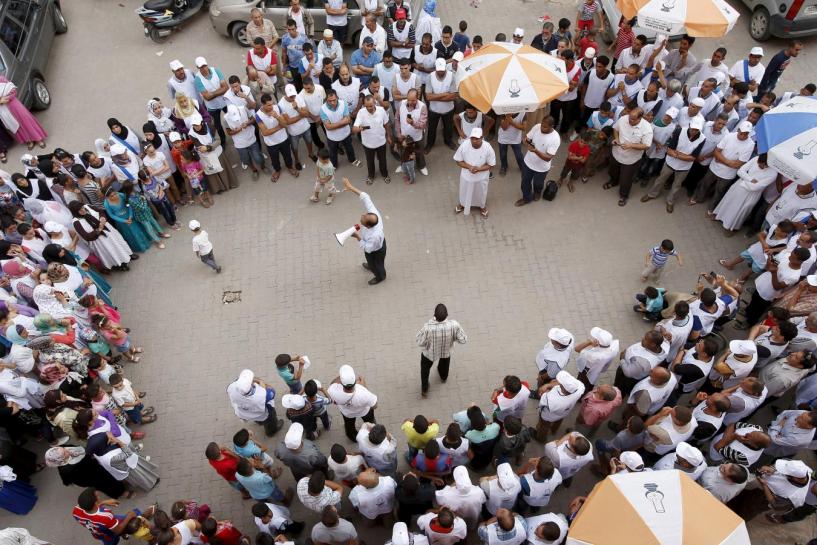Rabat- Moroccans went to the polls on Friday to elect a new parliament, which is made up of 395 seats. The elections are considered to be the second held since the Moroccan constitutional referendum in 2011.
Around 16 million Moroccans are eligible to vote, with 30 parties competing for seats. Turnout will be a key factor, especially it being extremely affected by the public’s negative attitude towards politics, it reached only 45 percent in the November 2011 polls.
Despite the relatively low turnout, it remains a better result than the 37 percent in 2007.
A list system and an electoral threshold that has been halved from six to three percent could hand small parties a key role in forming the next government. But no party openly challenges the king, who retains most executive authority. Voters will select lawmakers for the 395-seat House of Representatives. The prime minister will be selected by the king from the party that wins most seats.
Elections are taking place on Friday, which is considered an official workday in Morocco, despite opposition blocs having demanded that the polls be held on a Sunday, a day off, as to enable the greatest number of electorates to vote.
A wave of tension and political turbulence had hit Morocco’s climate.
The Islam-based Justice and Development Party (PJD) aims to fight off a liberal opposition which says it wants to roll back the “Islamisation” of Moroccan society.
The 13-day campaign held to downsize the PJD’s popularity, registered no harm.
PJD Leader Abdelilah Benkirane was still very much a crowd puller, as thousands attended all his speeches throughout his electoral campaign.
The PJD came to power in 2011, months after massive street protests prompted concessions from the monarchy.
A new constitution transferred some of the king’s powers to parliament, at a time when autocratic regimes were falling in Tunisia, Egypt and Libya.
Political analysts expect that the PJD will have the highest turnout, followed by the Authenticity and Modernity Party, then by the Istiqlal Party.
